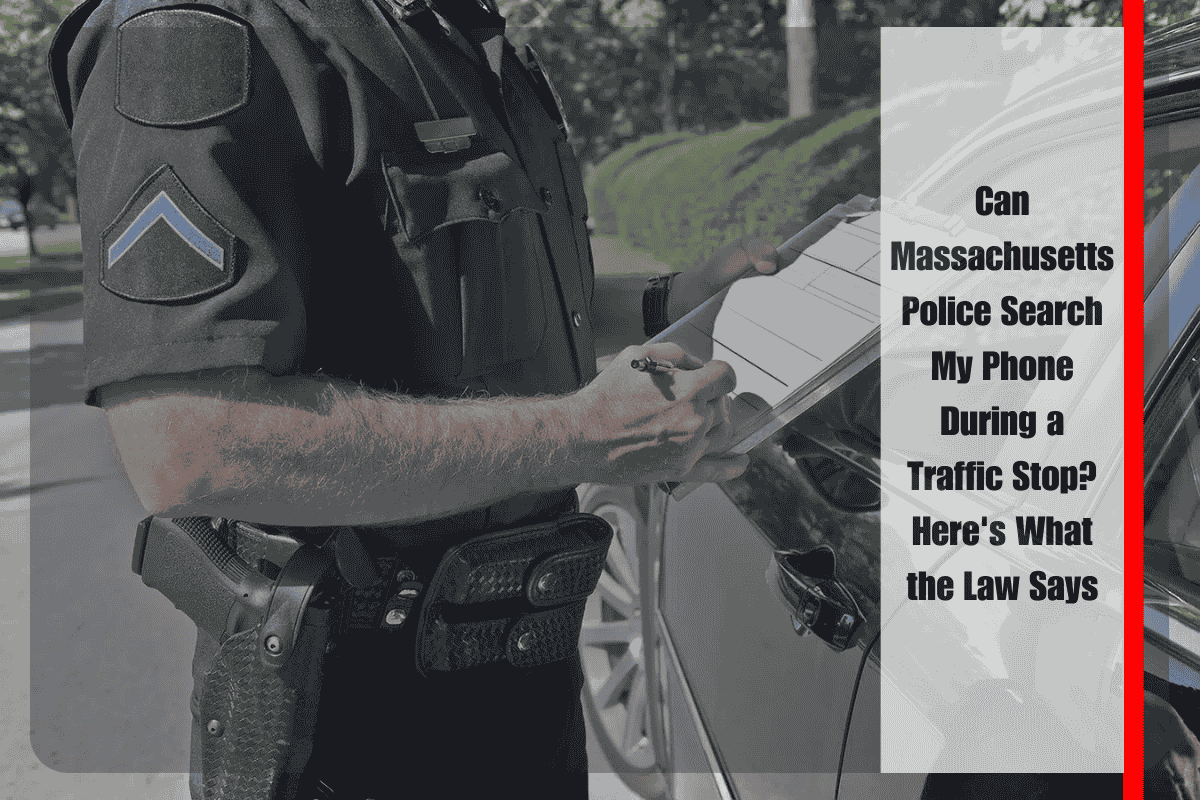If you’ve ever been stopped by police in Massachusetts, you may have wondered if they have the right to search your phone during the stop. With smartphones being such a vital part of our daily lives, containing personal data, messages, and even location history, it’s understandable to be concerned about your privacy rights. So, can Massachusetts police search your phone during a traffic stop? Here’s what the law says.
The Legal Grounds for a Phone Search in Massachusetts
Under Massachusetts law, as with most other states in the U.S., police generally cannot search your phone during a traffic stop without your consent, a warrant, or probable cause. The Fourth Amendment to the U.S. Constitution protects citizens from unreasonable searches and seizures, which includes personal devices such as cell phones. This means that a police officer cannot search your phone simply because you were pulled over for a traffic violation unless certain conditions are met.
Consent
The most straightforward way a police officer could legally search your phone is if you give them explicit consent. If an officer asks to look through your phone, you have the right to refuse. However, it’s important to note that if you consent to a search, any evidence found on your phone could be used against you. You are not obligated to allow a search, and you should always feel free to respectfully decline.
Probable Cause
In some cases, police may search your phone if they have probable cause. This means that if the officer has reasonable grounds to believe that your phone contains evidence of a crime, they may be able to search it without a warrant. For instance, if you’re being stopped for a traffic violation and the officer observes you engaging in criminal behavior (such as texting while driving), they may argue that they have probable cause to search your phone for evidence related to that behavior.
Warrant Requirement
Generally, Massachusetts police need a warrant to search your phone, especially if they do not have your consent and cannot establish probable cause. This requirement is grounded in U.S. Supreme Court rulings, most notably Riley v. California (2014), which ruled that law enforcement officers need a warrant to search a cell phone, even if the person is arrested. The Court found that the privacy interests associated with the data on a smartphone outweigh the need for immediate search without judicial oversight.
So, unless the police have a warrant or your consent, they typically cannot search your phone during a routine traffic stop.
Exceptions to the Warrant Requirement
There are some exceptions where police can search your phone without a warrant:
Search Incident to Arrest: If you are arrested during the traffic stop, the police may be able to search your phone as part of the arrest procedure. However, this is generally limited to searching for items that could be evidence of the crime you were arrested for or items that could pose a safety risk.
Exigent Circumstances: In certain urgent situations, where waiting for a warrant would put public safety at risk or destroy evidence, police may be allowed to search a phone without a warrant. For example, if the police believe that evidence on your phone could be destroyed in the time it takes to get a warrant, they might be able to act quickly. However, this is a narrow exception and often requires strong justification.
Can Police Force You to Unlock Your Phone?
In Massachusetts, as in many other states, police cannot force you to unlock your phone without your consent. If the officer requests that you unlock your phone, you are not legally required to comply. Refusing to unlock your phone does not give the police grounds for further action unless they have other legal justification, such as a warrant or probable cause.
However, police can request that you unlock the phone, but they would need to demonstrate to a judge that they have legal grounds to do so. In the past, some states have attempted to compel individuals to unlock their phones using biometrics (such as facial recognition or fingerprints), but this area of law is still evolving, and the legality can vary based on jurisdiction and case specifics.
Your Rights During a Traffic Stop
During a traffic stop in Massachusetts, it’s crucial to know your rights:
You do not have to consent to a search of your phone. If an officer asks to search your phone, you can respectfully decline.
If you are arrested, police may search your phone under certain conditions, but they still need a warrant to search the contents unless there’s probable cause.
You do not have to unlock your phone for the police, and you have the right to refuse to provide your phone’s password or biometric data unless they have a valid court order.
If you feel that your rights have been violated during a traffic stop or if you are unsure about a police officer’s actions, it’s advisable to consult with a lawyer to discuss your situation further.
In Massachusetts, as a general rule, police cannot search your phone during a traffic stop without your consent, a warrant, or probable cause. While there are exceptions to this rule, such as searches incident to arrest or exigent circumstances, the Fourth Amendment protects your right to privacy. Always remember that you have the right to refuse a search and that anything you say or do can potentially be used against you. Understanding your rights in these situations is crucial to protecting your privacy.
Sources
[1] https://www.neymanlaw.com/faqs/search-seizure-faqs/
[2] https://www.davidyannetti.com/articles/do-i-have-to-give-police-access-to-my-phone-during-a-traffic-stop/
[3] https://www.mass.gov/info-details/massachusetts-law-about-cell-phone-searches
[4] https://luzzolaw.com/understanding-search-and-seizure-laws-in-massachusetts/
[5] https://www.mass.gov/info-details/massachusetts-law-about-police-conduct-and-recording-the-police












